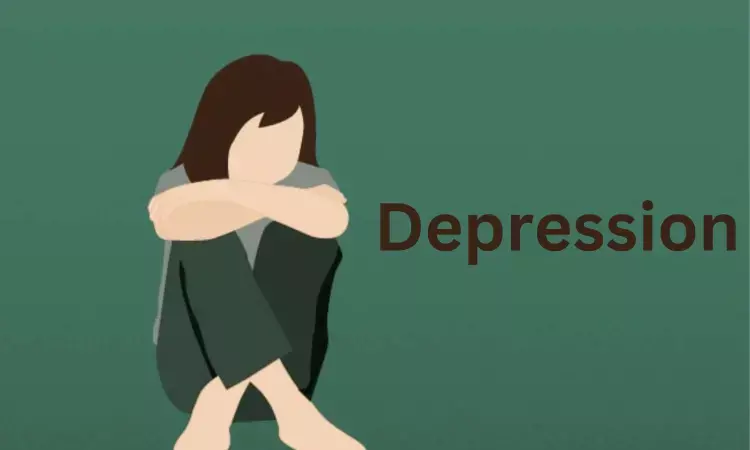- Home
- Medical news & Guidelines
- Anesthesiology
- Cardiology and CTVS
- Critical Care
- Dentistry
- Dermatology
- Diabetes and Endocrinology
- ENT
- Gastroenterology
- Medicine
- Nephrology
- Neurology
- Obstretics-Gynaecology
- Oncology
- Ophthalmology
- Orthopaedics
- Pediatrics-Neonatology
- Psychiatry
- Pulmonology
- Radiology
- Surgery
- Urology
- Laboratory Medicine
- Diet
- Nursing
- Paramedical
- Physiotherapy
- Health news
- Fact Check
- Bone Health Fact Check
- Brain Health Fact Check
- Cancer Related Fact Check
- Child Care Fact Check
- Dental and oral health fact check
- Diabetes and metabolic health fact check
- Diet and Nutrition Fact Check
- Eye and ENT Care Fact Check
- Fitness fact check
- Gut health fact check
- Heart health fact check
- Kidney health fact check
- Medical education fact check
- Men's health fact check
- Respiratory fact check
- Skin and hair care fact check
- Vaccine and Immunization fact check
- Women's health fact check
- AYUSH
- State News
- Andaman and Nicobar Islands
- Andhra Pradesh
- Arunachal Pradesh
- Assam
- Bihar
- Chandigarh
- Chattisgarh
- Dadra and Nagar Haveli
- Daman and Diu
- Delhi
- Goa
- Gujarat
- Haryana
- Himachal Pradesh
- Jammu & Kashmir
- Jharkhand
- Karnataka
- Kerala
- Ladakh
- Lakshadweep
- Madhya Pradesh
- Maharashtra
- Manipur
- Meghalaya
- Mizoram
- Nagaland
- Odisha
- Puducherry
- Punjab
- Rajasthan
- Sikkim
- Tamil Nadu
- Telangana
- Tripura
- Uttar Pradesh
- Uttrakhand
- West Bengal
- Medical Education
- Industry
Body dissatisfaction in late childhood tied to risk of depression by age 14: Lancet

UK: Findings from a recent longitudinal study published in The Lancet Psychiatry suggest that greater body dissatisfaction in late childhood is an important risk factor for depression during adolescence, irrespective of the child's body mass index (BMI).
"Body dissatisfaction at age 11 is linked to increased risk of depression by age 14," UCL researchers report. The findings show that body image concerns explain a large proportion of an association between BMI and depression in children, particularly in girls.
The study, supported by Wellcome, involved 13,135 participants of the Millennium Cohort Study, a UCL-led nationally representative birth cohort study of people born between 2000 and 2002.
The researchers found that high BMI at age seven was linked with increased depressive symptoms (which can include low mood, loss of pleasure and poor concentration) by age 14, as well as with greater body dissatisfaction at age 11.
They found that body dissatisfaction was a major contributor to the link between BMI at age seven and subsequent depressive symptoms, explaining 43% of the association.
All three of these associations were twice as large in girls compared to boys.
Lead author Dr Francesca Solmi (UCL Psychiatry) said: “Depression has become more common among young people, as have having an overweight BMI, and body dissatisfaction.
“Here we have found strong longitudinal evidence that a high BMI in childhood is linked with an increased risk of depressive symptoms multiple years later.
“But we were particularly interested in how much body dissatisfaction might be the driver of this link. We found strong evidence that being unhappy with one’s appearance is linked with increased depressive symptoms years later. Our findings suggest that any efforts to reduce weight in childhood need to consider their potential mental health impacts, so that we can avoid stigmatising weight and instead support children’s mental health and wellbeing.”
The research did not cover what other factors, besides body dissatisfaction, could explain why children with high BMI are more likely to develop depressive symptoms, but they say that other biological (for instance inflammation) or environmental (for instance bullying) pathways might explain part of the association.
First author Emma Blundell, trainee clinical psychologist at UCL Psychology & Language Sciences, said: “Many public health strategies seek to reduce weight in childhood. Primary school children are being taught about the importance of calories and exercise, and all young people in England are being weighed at school to determine whether weight loss efforts are needed. Whilst promoting healthy diet and exercise is important, it may be that some public health messaging could be fostering feelings of guilt or shame.
“It is important to ensure that any interventions to reduce BMI in childhood do not inadvertently increase body dissatisfaction and harm children’s mental health.”
The researchers say that some strategies to target body image concerns in early adolescence have been developed, such as with psychological interventions or media literacy training that could address self-esteem, social comparisons, and social media influences, but more research is needed to more effectively tackle body image concerns in young people.
Dr Solmi added: “Reducing body dissatisfaction in young people could be an important way of preventing depression, particularly in girls, at ages when social environments and peer relations become increasingly impactful.”
Reference:
Emma Blundell, Prof Bianca L De Stavola, Madelaine Davies Kellock, Gemma Lewis, Prof Anne McMunn, Longitudinal pathways between childhood BMI, body dissatisfaction, and adolescent depression: an observational study using the UK Millenium Cohort Study, DOI:https://doi.org/10.1016/S2215-0366(23)00365-6.
Dr Kamal Kant Kohli-MBBS, DTCD- a chest specialist with more than 30 years of practice and a flair for writing clinical articles, Dr Kamal Kant Kohli joined Medical Dialogues as a Chief Editor of Medical News. Besides writing articles, as an editor, he proofreads and verifies all the medical content published on Medical Dialogues including those coming from journals, studies,medical conferences,guidelines etc. Email: drkohli@medicaldialogues.in. Contact no. 011-43720751


